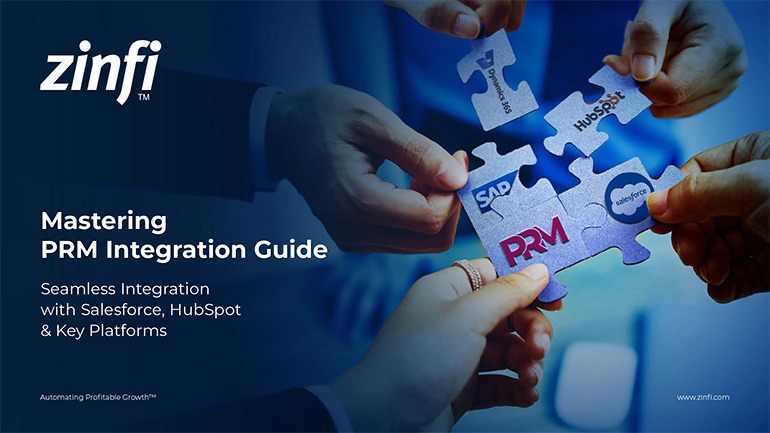Glossary - How to - Affiliate Marketing Management
How to Master Affiliate Marketing Management?
Introduction
Affiliate marketing management is the strategic oversight of affiliate programs, ensuring efficiency, profitability, and compliance. In the digital marketing landscape, businesses leverage affiliate marketing to drive sales and brand awareness by partnering with affiliates who promote products or services in exchange for commissions. Effective management ensures sustainable growth, enhances partner relationships, and optimizes revenue streams.
In Partner Relationship Management (PRM), affiliate marketing management is pivotal in automating partner onboarding, tracking performance, and optimizing payouts. By integrating PRM software, businesses can efficiently monitor affiliate activities, ensure transparency, and improve collaboration. Proper management is crucial for scaling operations while maintaining compliance and profitability.
Key Takeaways:
Establish Clear Affiliate Program Goals:
Setting well-defined objectives is essential for managing a successful affiliate marketing program. Goals should align with broader business objectives, whether increasing brand awareness, driving sales, or expanding into new markets.
- Identify key performance indicators (KPIs) such as conversion rates, traffic sources, and return on investment (ROI).
- Create commission structures that incentivize affiliates to maximize their efforts.
- Implement tracking tools to measure affiliate performance and make data-driven decisions.
Recruit and Onboard Quality Affiliates:
Choosing the right affiliates is crucial for the success of your program. Effective recruitment strategies include:
- Partnering with influencers, bloggers, and industry experts who align with your brand.
- Utilizing affiliate networks and marketplaces to access a broader pool of potential partners.
- Implementing an automated onboarding process using PRM software to streamline registration, training, and compliance.
Utilize Performance Tracking and Analytics:
Monitoring affiliate performance is necessary to optimize marketing efforts and ensure accountability.
- Use tracking software to measure clicks, conversions, and commissions.
- Analyze performance reports to identify high-performing affiliates and optimize underperforming ones.
- Implement fraud detection mechanisms to prevent fraudulent activities and ensure program integrity.
Optimize Affiliate Engagement and Retention:
Engaging and retaining affiliates ensures long-term program success.
- Provide regular updates, promotional materials, and marketing resources.
- Offer competitive commission rates and performance-based incentives.
- Foster communication through newsletters, webinars, and exclusive events.
Ensure Compliance and Legal Considerations:
Affiliate marketing involves legal and regulatory responsibilities.
- Establish clear terms and conditions for affiliates to follow.
- Comply with Federal Trade Commission (FTC) guidelines and General Data Protection Regulation (GDPR) requirements.
- Regularly audit affiliate activities to ensure compliance and prevent fraudulent activities.
Summary of Key Takeaways:
Effective affiliate marketing management involves setting clear goals, recruiting quality affiliates, tracking performance, engaging partners, and ensuring compliance. Implementing PRM software can streamline these processes, improving efficiency and profitability.
Key Examples:
- Automotive Manufacturing: Car manufacturers use affiliate marketing to promote new vehicle models through auto bloggers and reviewers. Effective management ensures compliance with advertising regulations and maximizes lead generation.
- Consumer Electronics: Tech companies partner with affiliates to drive product sales through review sites and social media influencers. Tracking software helps measure campaign effectiveness.
- Energy Production: Renewable energy companies leverage affiliates to educate consumers on sustainable solutions. Proper oversight ensures affiliates follow industry compliance standards.
- Financial Services: Banks and financial institutions manage affiliates promoting credit cards and loan products, requiring strict regulatory compliance and fraud prevention mechanisms.
- Food and Beverage: Restaurants and food brands use affiliates for promotions and discounts, enhancing brand visibility through food bloggers and social media.
- Healthcare Services: Healthcare brands work with affiliates to promote wellness products and services, ensuring strict adherence to advertising and medical regulations.
- Information Technology: SaaS companies manage affiliates promoting software subscriptions, optimizing partner engagement and commission structures.
- Pharmaceutical Development: Pharmaceutical firms partner with medical blogs and healthcare influencers while ensuring legal compliance in affiliate marketing strategies.
- Retail Industry: E-commerce brands rely on affiliate networks for product sales, utilizing tracking tools to optimize performance and engagement.
- Telecommunications: Telecom providers manage affiliates promoting mobile plans and broadband services, ensuring program scalability and compliance.
Conclusion:
Affiliate marketing management is essential for businesses to scale their affiliate programs successfully. Organizations can optimize performance and profitability by setting clear objectives, recruiting partners, leveraging analytics, and maintaining compliance. Partner Relationship Management (PRM) software further enhances efficiency by automating key processes and improving partner engagement. Implementing these strategies ensures a sustainable and thriving affiliate marketing program.
Associated Keywords:















